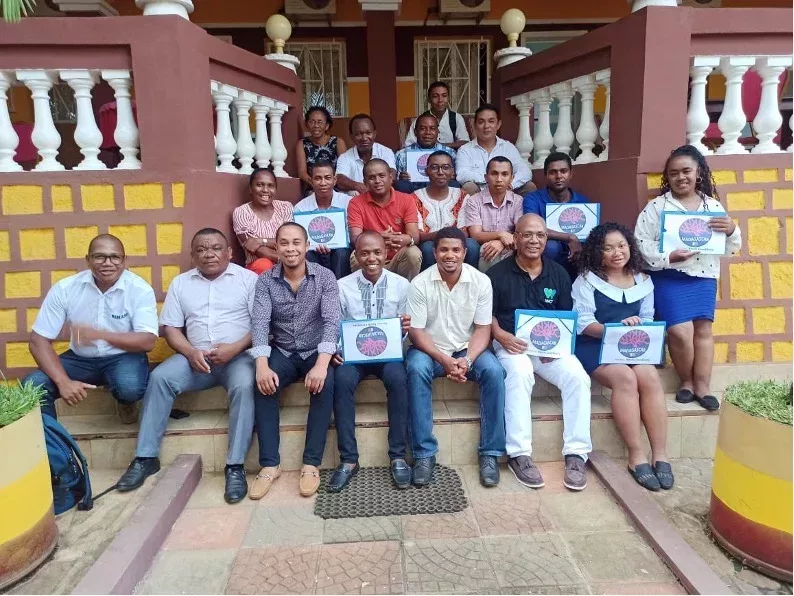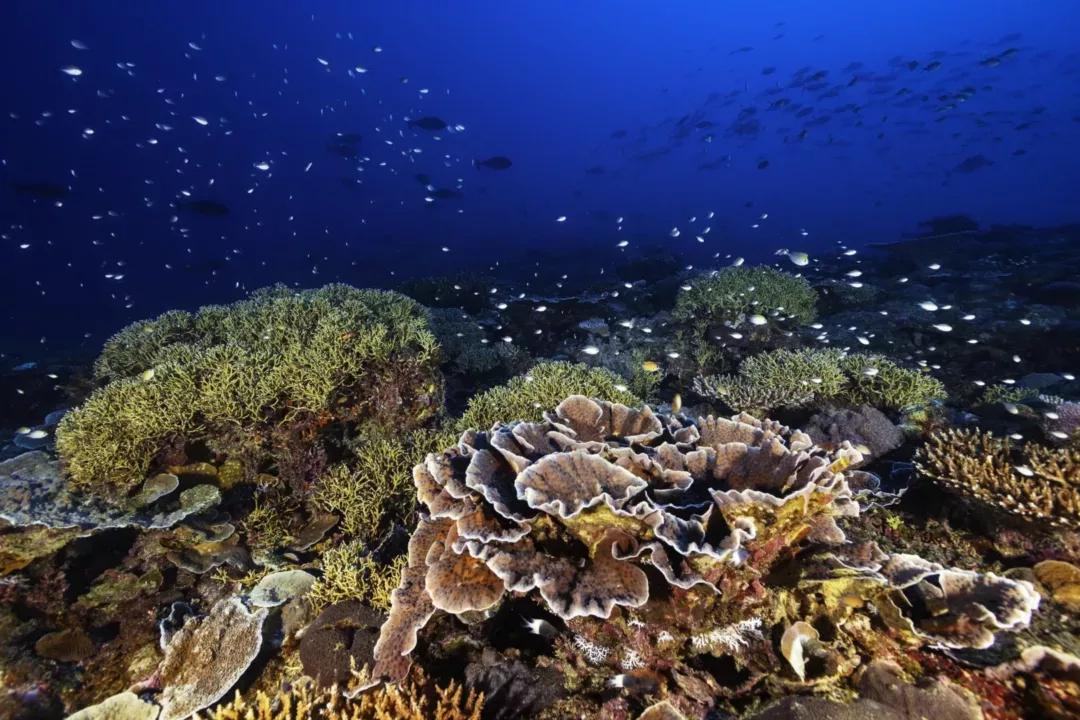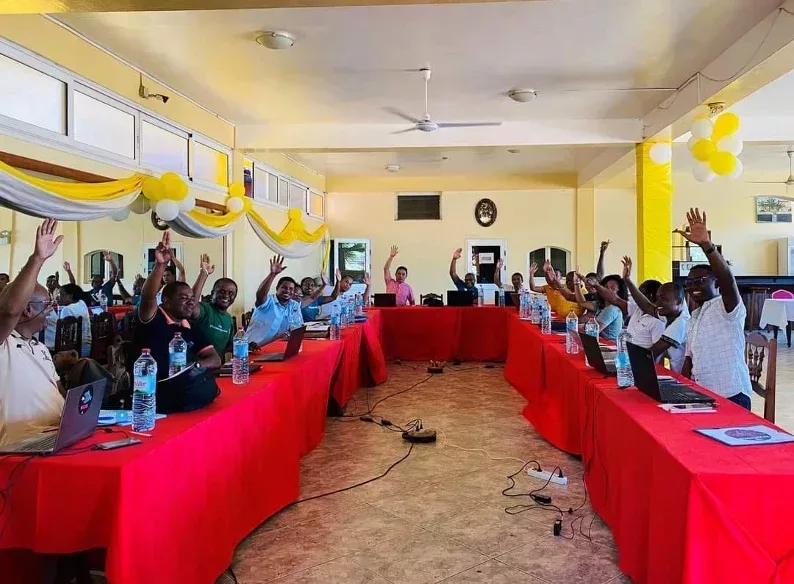A guest article by José Randrianandrasana and Gildas Todinanahary, on the revitalization of the Madagascar Coral Reef Network (MCRN).
The Madagascar Coral Reef Network (MCRN) was established by national stakeholders to promote coral reef conservation. With support from the IOC Island project, the Network was quite active prior to 2015, but after the completion of that project, the Network’s activities were on standby. The national report on the health state of the coral reefs of Madagascar could not be effectively produced since then, even if two general assemblies (GA) have been organized.
To revitalize the network, a General Assembly, the national authority in charge of protected areas, natural resources and ecosystems – DAPRNE (Directeur des Aires Protégées, des Ressources Naturelles et des Ecosystèmes), through the Sustainable Marine Resources Management project, supported by the MacArthur Foundation and the Wildlife Conservation Society (WCS), organized the post-COVID General Assembly, in Nosy Be Island, Madagascar, on 18th May and 19th May 2022. The aim of the GA in Nosy Be was mainly to establish the national report for the period of 2016 – 2021.
However, the agenda also included important objectives such as (i) the approval of the charter of the MCRN by the network members, (ii) the establishment of the network Coordinating Body, (iii) the presentation by each member of their activities related to coral reefs of Madagascar (monitoring results, research and restoration actions) between 2015 to 2021 and (iv) the organization and planning for the establishment of the national report on the Coral Reefs of Madagascar from 2015 to 2021.
As outcomes:
- the charter has been approved by all the members who attended,
- the coordinating body has been created and approved, and each of the body’s responsibilities elected. The Coordinating Body is constituted of
- a National Coordinator: Dr Gildas Todinanahary, Senior Lecturer at the Fishery and Marine Science Institute of the University of Toliara (IH.SM),
- a Technical Secretary: Mr Bemahafaly Randriamanantsoa, Marine Governance Coordinator within WCS Madagascar,
- a Substitute Technical Secretary: Mr Guy Celestin Rakotovao, from MIHARI Network,
- and a Technical Cell, composed of a representative of the Ministry of the Environment, a representative of the Ministry in charge of the Fisheries, two representatives of coral reef research centers or institutes, two representatives of non-governmental organizations, a representative of local communities and a representative of the private sector.
The Coordinating team will carry out its duties for the next two years.
Regarding the national coral reef report, a working group was also set up to ensure its production. The report will be mainly prepared by researchers from the Oceanographic Research Station of Vangaindrano (SROV, a branch of the National Oceanographic Research Center), IH.SM, WCS, Blue Ventures, Conservation International, and Madagascar National Parks. The Ministry of the Environment and Sustainable Development, through the DAPRNE, will ensure the data gathering from Madagascar’s MPA managers, according to the Network’s framework.
Moreover, it has been discussed that members’ capacity building will be planned and will focus on coral reef monitoring techniques including data collection, data processing and analysis. The training will be organized during the next General Assembly, which will be held on Sainte Marie Island, in 2024.
All the participating members of the network agreed that it is important to adopt formal synergic cooperation to ensure the efficiency of the human and financial resources that each organization is mobilizing. A better communication strategy is also a key point that has been encouraged to avoid overlapping initiatives and activities and to co-design projects and perform interlocking activities. The synergic cooperation will ensure that the coral reefs and coastal communities could only come out as winners and their resilience boosted.
José Randrianandrasana, Gildas Todinanahary




